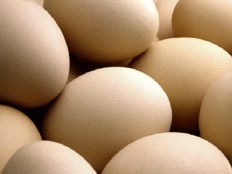|
||||||||||||||||||
|
|
Haiti - Agriculture : Eggs, poultry, livestock, production loss 23/09/2010 14:19:01
The challenge of livestock development in Haiti is feeding livestock, particularly pigs and poultry. The availability of grain and fodder from agricultural production is clearly insufficient to meet the food needs of these species. Access to food concentrates imported from the Dominican Republic is mainly limited by the quantities available on the domestic market and the purchasing power of most Haitian farmers who have incomes increasingly weak in recent years because, among others, many losses due to diseases. To meet this challenge, the Ministry of Agriculture, Natural Resources and Rural Development (Ministère de l’Agriculture, des Ressources Naturelles et du Développement Rural MARNDR) is currently studying the possibility of importing from Argentina ingredients needed to manufacture in Haiti of animal feed. The aim is to make the chicken Haitian competitive with the imported chicken subsidizing the manufacture of animal feed by domestic mills. In addition to actions in progress, two major projects for the production of table eggs and laying hens will start soon with funding from the Haitian State:
This year, the livestock situation is less favorable compared to last year. The combined effect of the earthquake and disease have caused a decline in numbers. The cattle population has been most affected by the earthquake, many animals were killed by collapsing homes or swept away by landslides and mudslides. One consequence of the earthquake was delaying vaccination campaigns for poultry and cattle. The purchase of vaccines has been deferred in favor of importing drugs to treat the wounded from the earthquake. On the pig and poultry are the result of disease and inadequate diet which have been mainly the cause of attrition. Teschen disease covers almost the entire country and cause massive losses of up to 40% of pigs. The unavailability of vaccine against this disease poses a serious threat to pig farming in Haiti. Classical swine fever and Newcastle disease raging for decades are not yet fully controlled for reasons related to inadequate resources. The resurgence of these diseases has resulted in sales of healthy animals in the markets higher than usual, especially pigs and poultry. By cons, sales of goats were better suited to de-capitalization of rural households to pay for acquisition of inputs and farm labor in the agricultural season of spring. HL / FAO / WFP / 21/09/2010 / HaitiLibre
|
|
|
Why HaitiLibre ? |
Contact us |
Français
Copyright © 2010 - 2024 Haitilibre.com |



